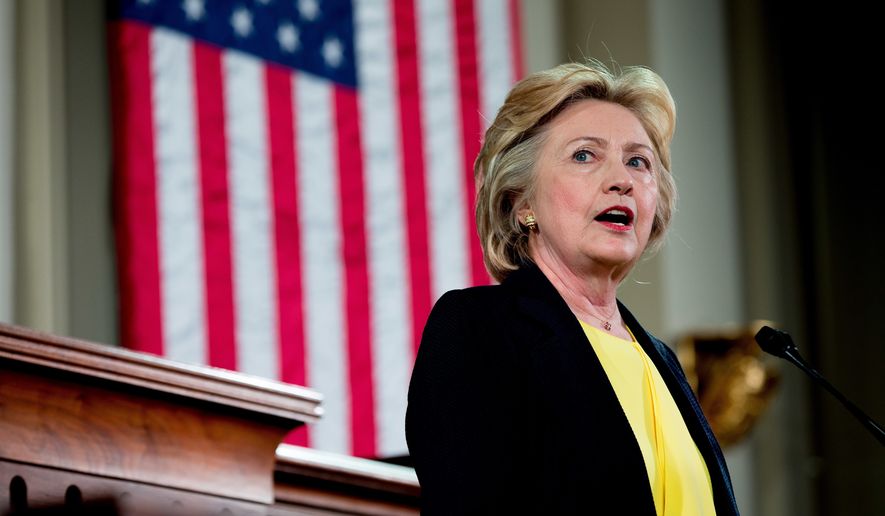Hillary Clinton told a federal court Friday that she shouldn’t have to testify under oath about her secret email system because the messages she withheld from the government are going to be produced by the FBI.
Mrs. Clinton had assured the court she’d turned over every government-related message she had, but the FBI found “thousands” of messages on her devices that were work-related but that she withheld.
Judicial Watch, a conservative law firm, wants Mrs. Clinton to have to sit for a sworn deposition on the issue, but through her lawyers the former State Department secretary asked to be excused from such a step, saying it was extraordinary and unnecessary.
David E. Kendall, her lawyer, said that Judicial Watch has been trying to get a look at the messages Mrs. Clinton withheld, and since the FBI is going to turn over what it found, that takes care of the group’s claims.
“Judicial Watch thus will be obtaining its requested relief,” he wrote. “In this circumstance, there is no need for discovery, and permitting Judicial Watch to depose a former Cabinet secretary would be futile and inappropriate.”
Judge Emmet G. Sullivan has scheduled a hearing Monday on whether to require Mrs. Clinton to testify.
Her top aides have already sat for sworn depositions in the case, and they testified that Mrs. Clinton never gave much thought to her duties under open-records laws to store her emails for posterity. But Mrs. Clinton’s lawyers say it was an oversight, not an effort to thwart the Freedom of Information Act.
The State Department, in its own filing Friday, said also tried to shield Mrs. Clinton from having to testify, and said at the very least Judge Sullivan should delay a decision until all sides can see what the FBI turns over.
As secretary, Mrs. Clinton used a secret email account tied to a server she kept in the basement of her New York home. That effectively thwarted all open-records requests for her emails during her four years in office and for nearly two years afterward.
After being prodded, she turned over some 32,000 messages she deemed work-related in December 2014, but had her lawyers delete another 30,000 she claimed were private.
The FBI concluded that Mrs. Clinton did send and receive classified information on her server, but Director James Comey said Mrs. Clinton was too unsophisticated to realize the national security risk she was taking, so he didn’t recommend charges against her.
Still, he said she did appear to violate open-records laws, and he said his agents recovered thousands of work-related emails from her devices that she didn’t turn over to the State Department. The FBI said it will provide those to State, which said it will process them per usual.
The department has given no timeframe on that.
• Stephen Dinan can be reached at sdinan@washingtontimes.com.




Please read our comment policy before commenting.